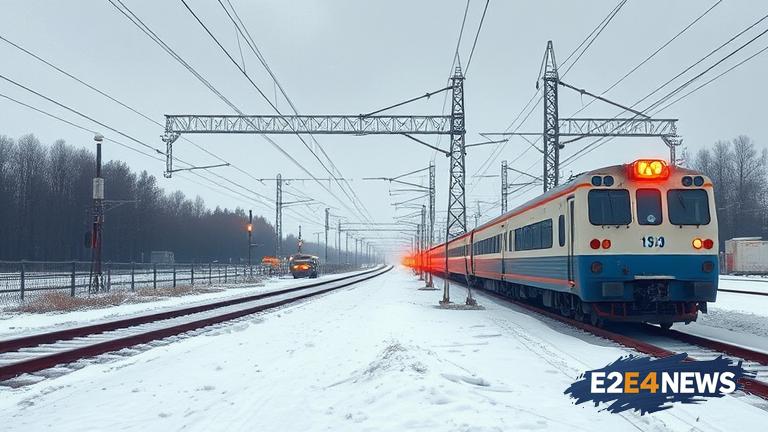A recent drone attack originating from Ukraine has caused significant disruption to the power supply of the Volgograd railway in Russia. This incident marks a notable escalation in the ongoing conflict between the two nations. The attack, which was confirmed by Russian authorities, resulted in the temporary shutdown of railway operations in the affected area. The Volgograd railway is a critical transportation artery, playing a vital role in the movement of goods and people across the region. The disruption caused by the drone attack has raised concerns about the potential for future attacks on Russia’s infrastructure. Ukrainian forces have been increasingly employing drone technology in their military operations, leveraging its strategic advantages for reconnaissance and offensive maneuvers. The use of drones in this context underscores the evolving nature of modern warfare, where technological advancements are continually reshaping the battlefield. Russia has condemned the attack, viewing it as a provocative act that undermines regional stability. In response, Russia may consider bolstering its defensive capabilities, including enhancing its anti-drone systems to protect critical infrastructure. The international community is closely monitoring the situation, with many nations expressing concern over the escalating tensions between Russia and Ukraine. The conflict has significant implications for global security and economic stability, particularly in the context of energy supplies and trade routes. Despite diplomatic efforts to resolve the conflict peacefully, the situation remains volatile, with both sides dug in and refusing to back down. The drone attack on the Volgograd railway highlights the complexity and unpredictability of the conflict, where unconventional tactics are being increasingly employed. As the situation continues to unfold, there is a growing urgency for a negotiated settlement to prevent further escalation and humanitarian suffering. The role of international organizations and major world powers will be crucial in facilitating dialogue and finding a peaceful resolution. Meanwhile, the people of Ukraine and Russia continue to bear the brunt of the conflict, facing uncertainty and hardship as the political and military standoff persists. The economic consequences of the conflict are also being felt globally, with trade disruptions and increased military spending affecting economies worldwide. In the face of these challenges, there is a renewed focus on finding durable solutions that address the underlying issues driving the conflict. This includes efforts to strengthen international law, promote dialogue, and support economic development in affected regions. The path forward will undoubtedly be challenging, requiring sustained commitment and cooperation from all parties involved. As the world watches the developments in Ukraine and Russia, there is a shared hope for a return to peace and stability, allowing the region to heal and rebuild. The use of drone technology in the conflict has opened up new avenues for military strategy, but it also poses significant ethical and legal questions regarding the conduct of warfare. Moving forward, it will be essential to establish clear guidelines and norms for the use of such technology, to prevent its misuse and mitigate its harmful effects on civilians and non-combatants. Ultimately, the resolution of the conflict will depend on the ability of the international community to come together and support a comprehensive and inclusive peace process.
